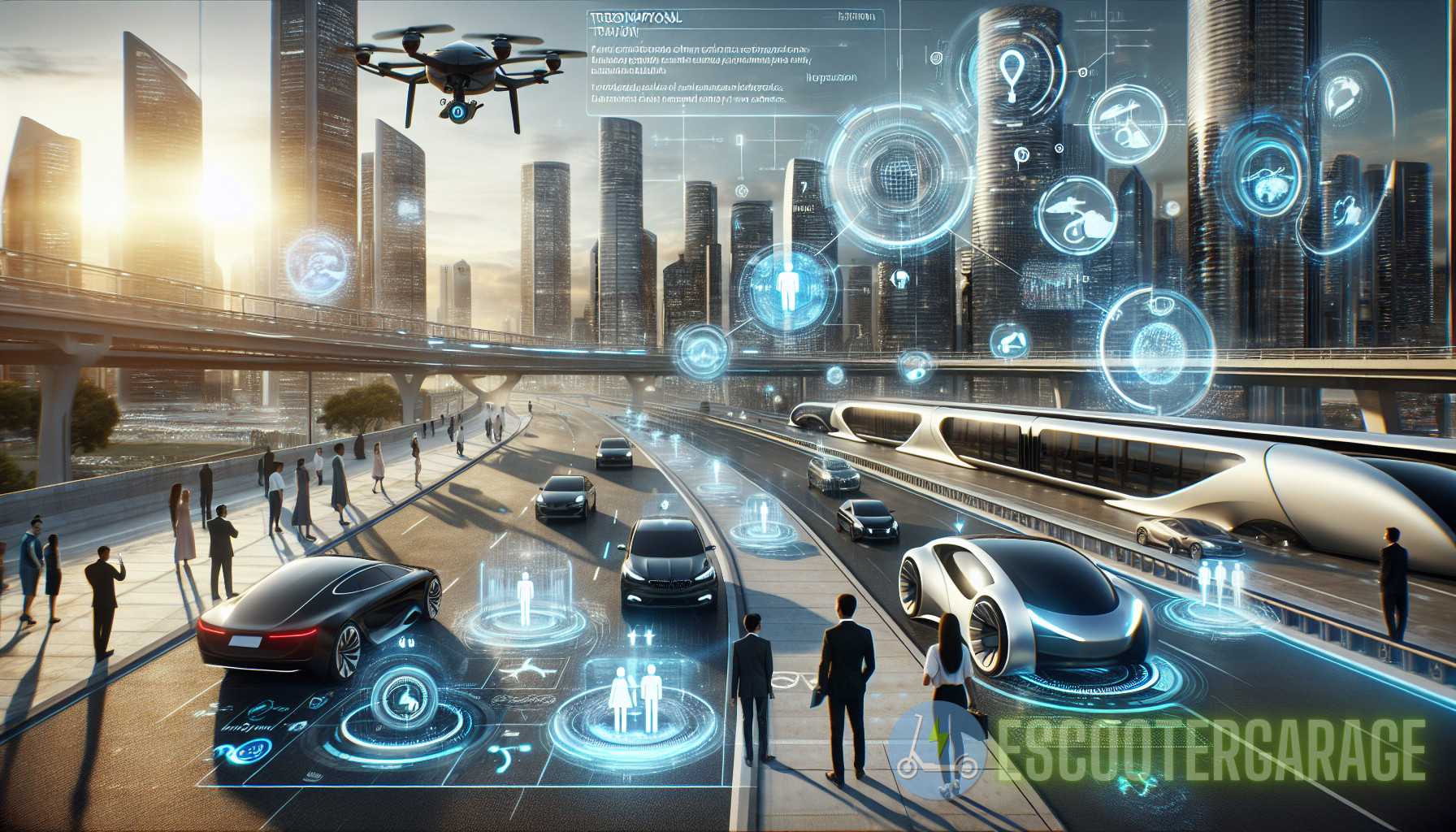Revolutionary Insights: Investigating Adaptive AI Systems for Personalized Smart Transportation
Transportation is an essential aspect of our daily lives. Whether it’s commuting to work, running errands, or exploring new places, we rely on various modes of transportation to get us from point A to point B. In recent years, technological advancements have revolutionized the way we travel, making it more efficient, convenient, and sustainable. One of the most exciting developments in transportation technology is the integration of Adaptive AI systems for personalized smart transportation. In this article, we will delve deeper into this groundbreaking innovation, exploring its benefits, challenges, and future prospects.
The Rise of Adaptive Transportation
Adaptive transportation refers to the use of Artificial Intelligence (AI) systems to create personalized travel experiences for individuals. These systems analyze data from various sources, including user preferences, real-time traffic information, and weather conditions, to optimize routes, suggest transportation modes, and provide tailored recommendations.
With the growing availability of connected devices and the Internet of Things (IoT), the potential for adaptive transportation has expanded significantly. From smart cars to electric scooters, these AI-driven systems can tap into vast amounts of data to make real-time decisions and provide users with a seamless and personalized travel experience.
The Benefits of Adaptive AI Systems for Personalized Smart Transportation
Adaptive AI systems for personalized smart transportation offer a wide range of benefits that enhance both the efficiency and user experience of travel. Here are some of the key advantages:
- Optimized routes: By analyzing real-time traffic data and considering user preferences, adaptive AI systems can generate the most efficient routes, minimizing travel time and reducing congestion.
- Tailored recommendations: Based on user preferences, these systems can suggest the most suitable transportation modes, taking into account factors such as cost, convenience, and environmental impact.
- Seamless integration: Adaptive AI systems can seamlessly integrate with various transportation modes, allowing users to switch between different modes without inconvenience.
- Improved safety: By analyzing data on road conditions, weather forecasts, and user preferences for safety, these systems can provide real-time alerts and warnings, ensuring a safer travel experience.
- Reduced environmental impact: Adaptive AI systems promote sustainable transportation options, such as electric vehicles and public transportation, reducing greenhouse gas emissions and promoting a cleaner environment.
- Enhanced user experience: With personalized recommendations and real-time updates, these systems provide users with a smoother, more enjoyable travel experience.
The Challenges of Implementing Adaptive AI Systems
While the potential benefits of adaptive AI systems for personalized smart transportation are significant, their implementation does come with its fair share of challenges. Here are some of the key hurdles that need to be addressed:

- Data privacy and security: As these systems gather and analyze vast amounts of personal data, ensuring robust data privacy and security measures is crucial to build user trust and protect sensitive information.
- Infrastructure requirements: The successful implementation of adaptive AI systems relies on a robust infrastructure, including widespread connectivity, data networks, and reliable sensors, which may require significant investments.
- Interoperability: To provide seamless travel experiences, adaptive AI systems need to be compatible with various transportation modes and integrate with existing infrastructure. Achieving interoperability between different systems can be a complex task.
- Accessibility and inclusivity: It is important to ensure that these systems cater to the needs of all individuals, including those with disabilities or limited mobility, to promote an inclusive transportation system.
- Regulatory frameworks: The introduction of adaptive AI systems raises important questions about regulatory frameworks, liability, and accountability. Establishing clear guidelines and regulations is essential to ensure safety and fairness.
The Future of Adaptive AI Systems for Personalized Smart Transportation
The potential for adaptive AI systems in transforming the future of transportation is immense. As technology continues to advance and our understanding of AI improves, we can expect significant progress in the field of personalized smart transportation. Here are some key trends and developments to watch out for:
- Integration of autonomous vehicles: Adaptive AI systems will play a crucial role in the development and integration of autonomous vehicles, making them safer, more efficient, and highly personalized.
- Expansion of smart city initiatives: Adaptive AI systems will be integral to the development of smart cities, optimizing traffic flow, reducing congestion, and promoting sustainable transportation options.
- Enhanced multimodal transportation: These systems will continue to improve the integration of different transportation modes, allowing users to seamlessly switch between options such as bikes, scooters, cars, and public transportation.
- Improved user interfaces: The user interfaces of adaptive AI systems will become more intuitive and user-friendly, making it easier for individuals to access and utilize personalized travel recommendations.
- Further advancements in data analytics: As AI technology progresses, adaptive AI systems will be better equipped to analyze and interpret vast amounts of data, leading to more accurate recommendations and optimized travel experiences.
Conclusion
Adaptive AI systems for personalized smart transportation have the potential to revolutionize the way we travel, offering optimized routes, tailored recommendations, and enhanced user experiences. While there are challenges to overcome, the future of adaptive transportation looks promising. As technology continues to advance and society embraces smart and sustainable transportation solutions, we can expect these innovative systems to play a significant role in shaping the future of transportation.
For more information on the latest e-scooter innovations and the power of smart e-scooter connectivity, check out the following articles:
- Revolutionizing Personal Transportation: Discover the Power of Smart E-Scooter Connectivity
- The Latest E-Scooter Innovations: Game-Changing Tech Transforming Transportation
For more information on adaptive transportation systems, check out the Intelligent Transportation System Wikipedia page.



